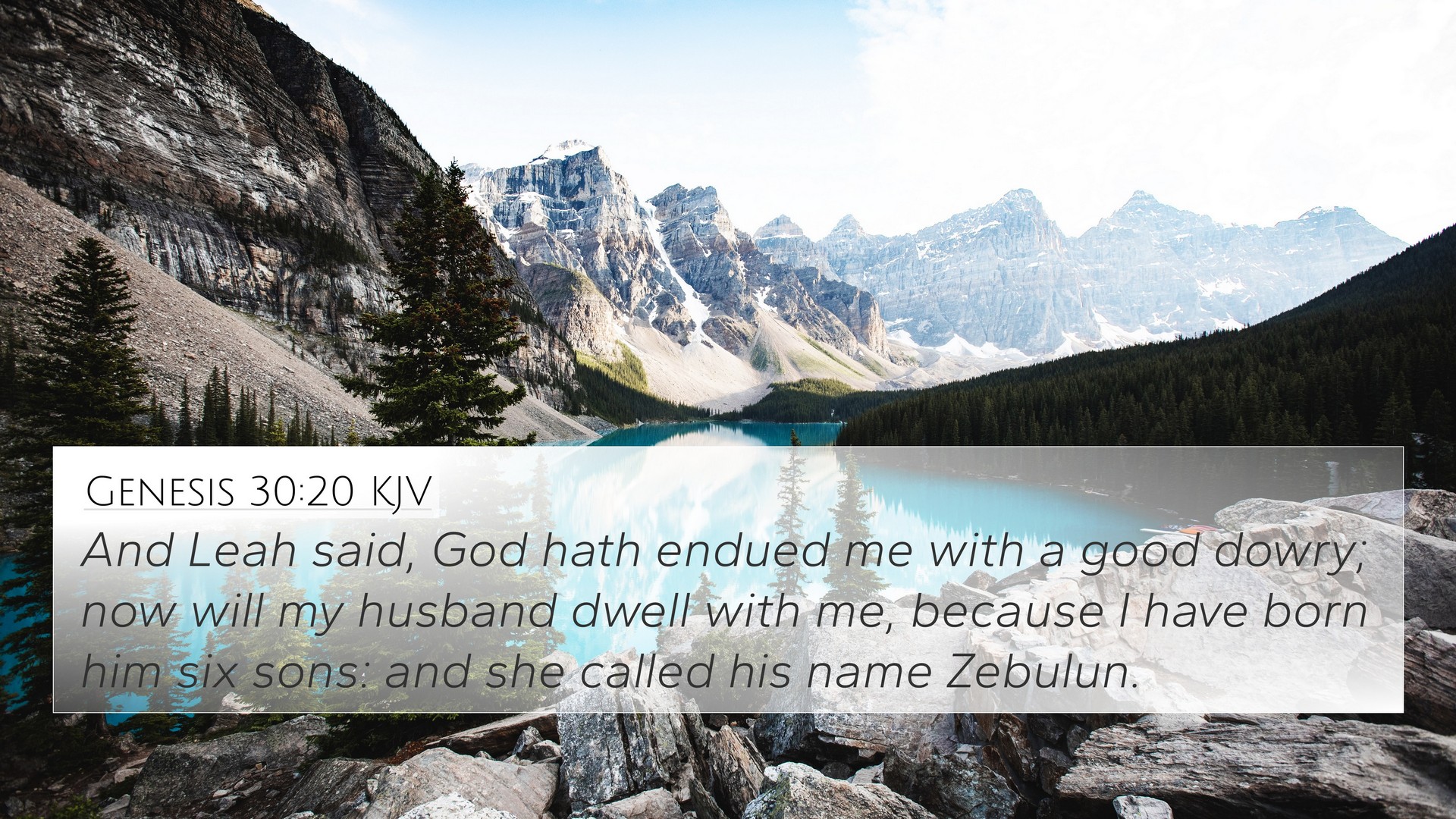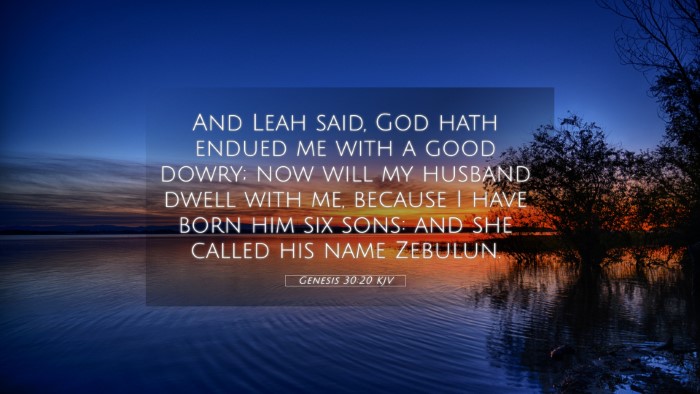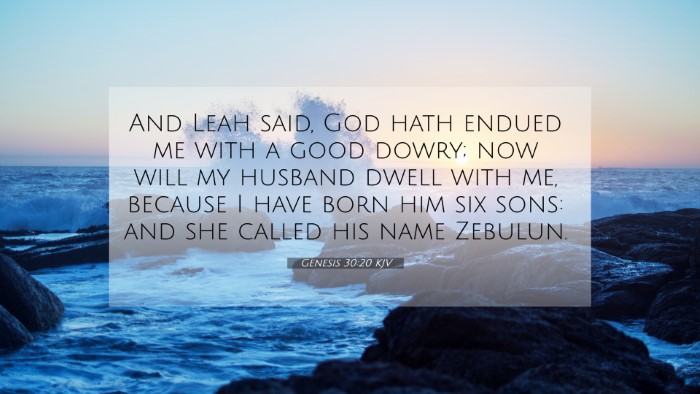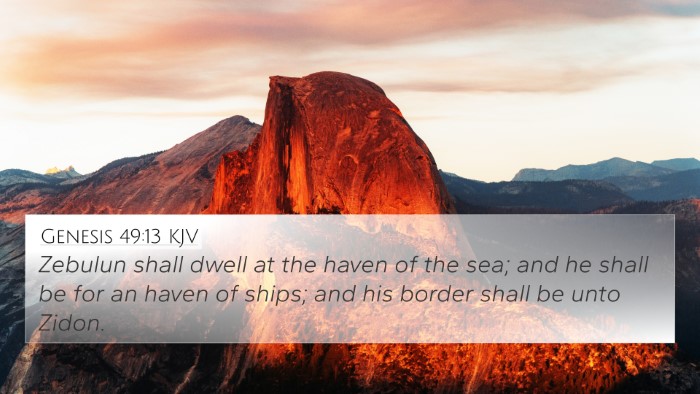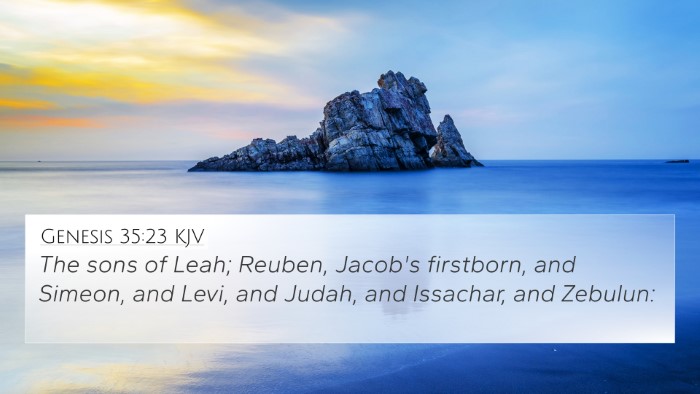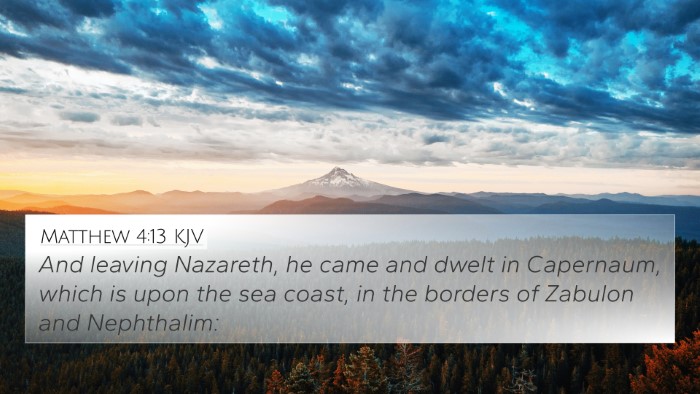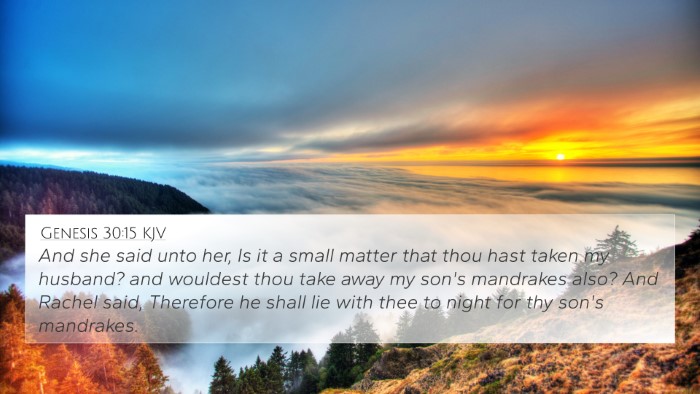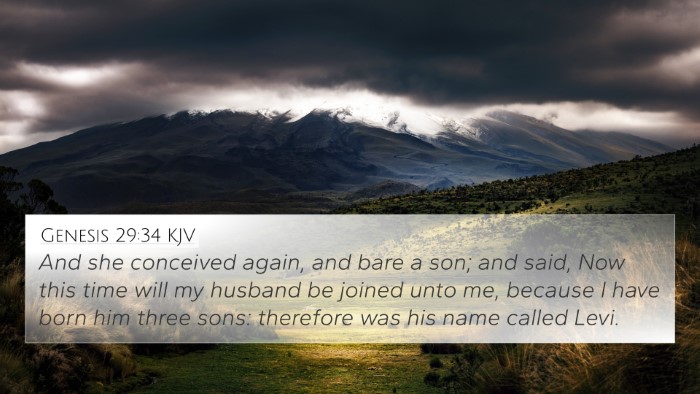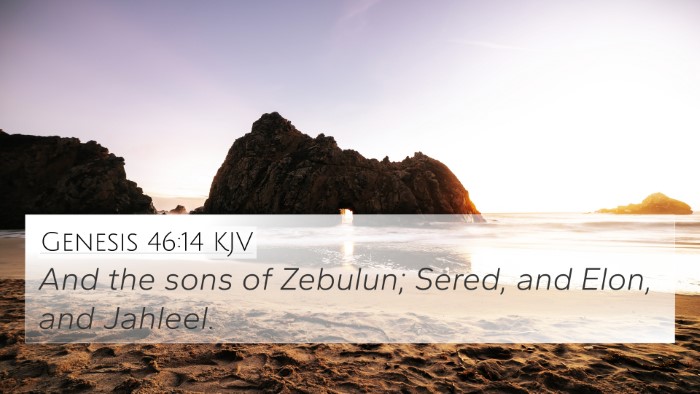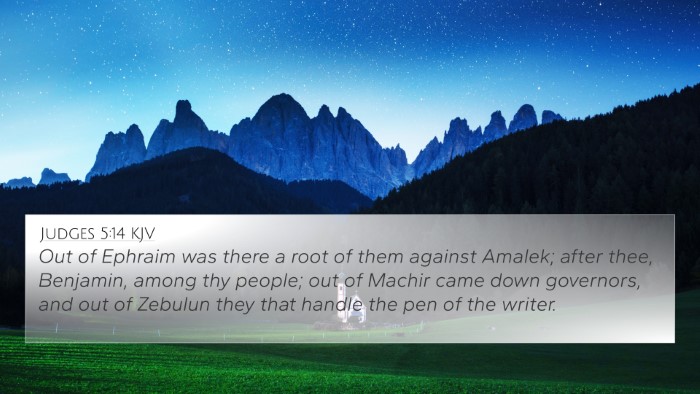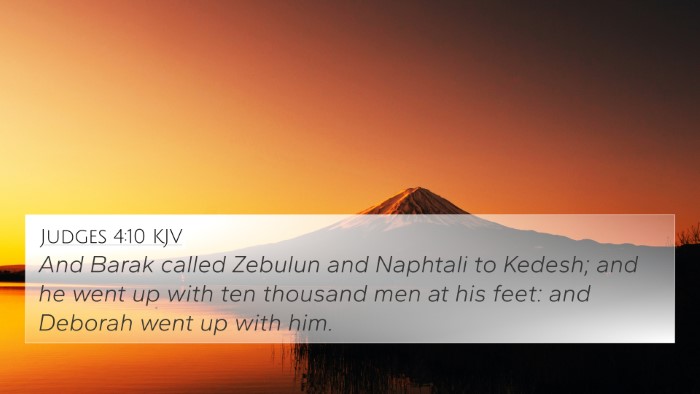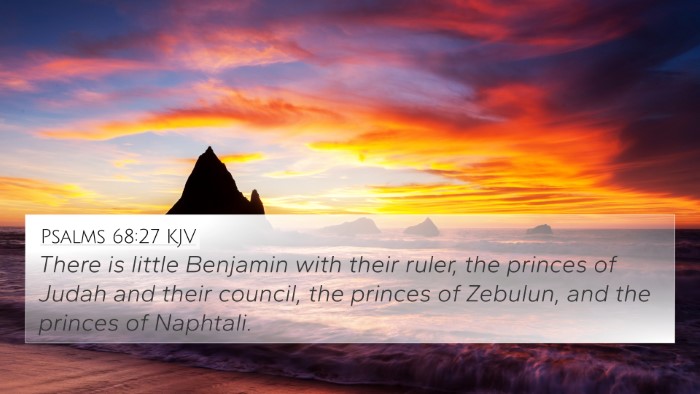Understanding Genesis 30:20
Genesis 30:20 states, "And Leah said, God hath endued me with a good dowry; now will my husband dwell with me, because I have born him six sons. And she called his name Zebulun." This verse comes from the account of Jacob and his two wives, Leah and Rachel, highlighting themes of family dynamics, divine favor, and the significance of lineage in the Biblical narrative.
Summary of Key Themes
- Divine Providence: The act of Leah naming her son Zebulun reflects her acknowledgment of God's role in her fruitfulness and marital situation.
- Societal Expectations: Leah's hope that bearing more children will secure her husband's affection speaks to the cultural context of the time.
- Family and Legacy: The birth of Zebulun is part of the broader narrative of Israel's tribes and God's covenant with Jacob.
Commentary Insights
Matthew Henry: In his famous commentary, Henry emphasizes the joy and relief Leah feels as she contemplates her increased standing in Jacob's household. Her declaration of having a "good dowry" indicates a cultural correlation between motherhood and value in her marriage.
Albert Barnes: Barnes highlights that Leah probably felt vindicated by her ability to bear six sons, viewing this accomplishment as a divine reward and a hope for Jacob's affections. His deep dive into the text points to the overall themes of jealousy and rivalry present in Jacob's family dynamics.
Adam Clarke: Clarke discusses the etymology of the name Zebulun, suggesting that it denotes a significant step in Leah's relationship with Jacob. He provides a meticulous examination of the implications of this verse in the context of Jacob's lineage, noting how each of Leah’s sons contributes to the story of the Israelites.
Bible Cross References
Genesis 30:20 can be connected to several other significant verses that help elucidate its meaning:
- Genesis 29:32: "And Leah conceived, and bare a son, and she called his name Reuben: for she said, Surely the Lord hath looked upon my affliction; now therefore my husband will love me." - This establishes the context of Leah's previous struggles for Jacob's affection.
- Genesis 29:33: "And she conceived again, and bare a son; and said, Because the Lord hath heard that I was hated, he hath therefore given me this son also: and she called his name Simeon." - Leah's continuous hope is demonstrated here, leading up to the birth of Zebulun.
- Genesis 29:34: "And she conceived again, and bare a son; and said, Now this time will my husband be joined unto me, because I have borne him three sons: therefore was his name called Levi." - This verse reflects Leah's ongoing struggle with her relationship with Jacob.
- Genesis 49:13: "Zebulun shall dwell at the haven of the sea; and he shall be for an haven of ships; and his border shall be unto Zidon." - This prophetic blessing highlights Zebulun's future role among the tribes of Israel.
- Deuteronomy 33:18-19: "And of Zebulun he said, Rejoice, Zebulun, in thy going out; and, Issachar, in thy tents." - These verses resonate with the legacy of Zebulun's tribe and their integration into Israel's community.
- Luke 1:48: "For he hath regarded the low estate of his handmaiden: for, behold, from henceforth all generations shall call me blessed." - This verse from Mary's Magnificat mirrors Leah's feeling of being favored by God despite her low status.
- John 1:46: "And Nathanael said unto him, Can there any good thing come out of Nazareth? Philip saith unto him, Come and see." - Resonates with the themes of skepticism and faith in the face of divine purpose in family lines.
Connections to Other Bible Verses
The insights from Genesis 30:20 lead us into inter-Biblical dialogues about the roles of women, the dynamics of marriage, and the importance of lineage in the history of salvation. Various books of the Bible can provide a comparative analysis in a thematic way, especially the role of women in the lineage of Christ, seen in:
- Matthew 1:2-3: The genealogy of Jesus is enriched by the mention of women and their varied experiences.
- Ruth 4:21-22: Offers perspective on lineage and redemption, relating back to the ancestral stories.
- Hebrews 11:32-34: Women's faith, including figures from the Old Testament, is celebrated in the "Hall of Faith."
Thematic Bible Verse Connections
Through cross-referencing these themes, one can explore:
- Women’s roles in Scripture and how they interconnect with divine sovereignty.
- Family legacy and its importance to God’s plans.
- The interplay of divine favor and personal circumstance in Biblical narratives.
Conclusion
Understanding Genesis 30:20 enriches the reader's comprehension of important familial and theological themes. Cross-referencing offers a deeper, more holistic understanding of Scripture as a cohesive narrative driven by divine purpose. For those studying the Bible, these insights serve as tools for Bible cross-referencing and deeper spiritual reflection.
